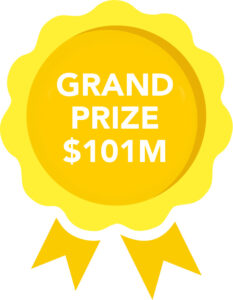Can Tech Advance Longevity? Bestselling author thinks tech is the answer — and plans to award $101 million to the best ideas
By Deborah Jeanne Sergeant
 In late November, Peter Diamandis announced a new XPRIZE competition, his $101 million worldwide event for pioneering technology that promotes healthy longevity.
In late November, Peter Diamandis announced a new XPRIZE competition, his $101 million worldwide event for pioneering technology that promotes healthy longevity.
Diamandis is the founder of the XPRIZE Foundation of Culver City, California. The organization creates supports technological, environmental and health advances through competitions, among other efforts.
Diamandis hopes to attract doctors, researchers, technology experts and more to develop verifiable means to roll back the clock by a decade in areas like muscle mass, immune function and cognitive ability for people aged 65 to 80 within a year.
Judges of the competition will perform assessments on participants to rank the contestants’ results. The competition is sponsored by Hevolution, a nonprofit organization investing in aging research.
“The team has got to deliver a minimum of a 10-year restoration of function with a target of 20 years,” Diamandis told Fortune. “We’re talking about the potential for therapeutics to have a massive impact on humanity.”
The goal is not just longevity, but healthy longevity, in which those benefiting from the technology can stay active and enjoy their extra decade or two.
Although the XPRIZE may succeed in finding such helpful technology, improving the chances of healthy longevity is available now.
Lauren Goetz, owner of Everyday Hands in Rochester, provides companion and errand services largely to an older adult population.
“Community and socialization and purpose would help people live longer,” she said. “We have to have a reason to keep going and shared experience. Connection is a key to life.”
Along with connection often comes greater physical activity and more cognitive activity, both of which are beneficial.
Regular physical activity is also key to healthy longevity. Kerri Howell, certified personal trainer and owner of The Hourglass Mom in the Rochester area, recommends preserving muscle strength.
“More muscle means fewer falls, more strength and mobility,” she said.
It also contributes to performing activities of daily living, such as cleaning the house, shopping for groceries and cooking. These become harder with less muscle.
“Falls among older adults have been identified as a strong indicator of shortened lifespans,” said Ann E. Cunningham, executive director at Oasis Rochester. “They contribute to bone fractures, which lead to deconditioning and greater susceptibility to illness.”
She noted a recent advisory from the US Surgeon General, which called attention to the public health crisis of loneliness, isolation and lack of connection with others.
“He stated that lack of connection can be as detrimental to our health as smoking daily,” Cunningham said.
She added that by engaging with organizations like Oasis Rochester, which provide opportunities in lifelong learning, health and wellness, “we can build strong interpersonal connections, remain active and engaged and continue learning and growing.”
Although technology can help people live safer, healthier and longer lives, Jean Sica believes in keeping it simple.
“My opinion is that good health is not complicated,” she said. “All we need to do is to go back to the basics. We don’t need more technology or fancy studies.
“It’s people paying attention to what their bodies are telling them. Disease is most often a way for our body to tell us we need to change our lifestyles.”
Sica is a certified tai chi instructor, personal trainer and owner of Kokoro Fitness in Rochester.

